#RisingExecutives: After 12 years at Total Energies Uganda, Linda Nabirye steps into the world of PR consulting
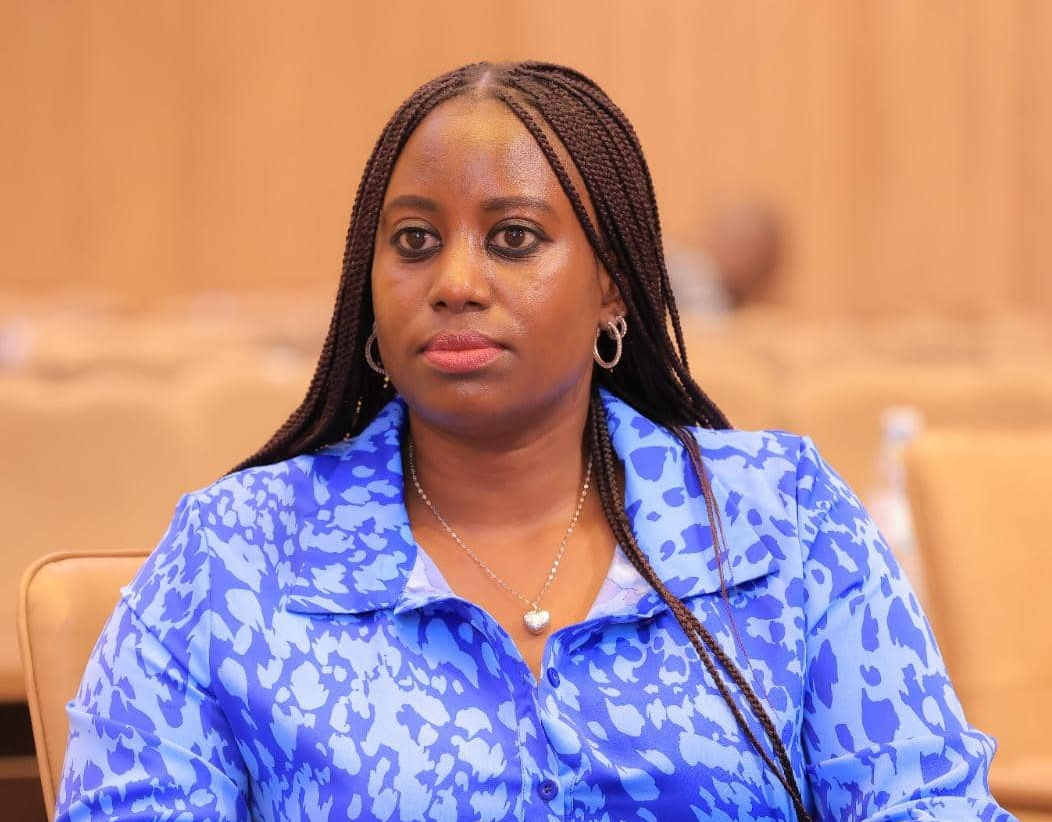
HONORABLE EXIT: It’s time out. After 12 years of steering public relations at TotalEnergies EP Uganda, Linda Nabirye bows out into the world of consultancy.
At TotalEnergies, through Tilenga– Uganda’s most watched oil project, Nabirye cut through the swings of politics, rumour, and promise to make meaning.
That instinct was seeded earlier at the dinner table, where her father, the late statesman Henry Kyemba, treated conversation like a craft and history like a ledger you must keep.
Before oil, she sharpened her PR edge with Google, Samsung, and MultiChoice, turning launches into talking moments.
Now she’s stepped out on her own with LNEK Consulting, swapping the corporate perimeter for the wide-open field.
The stakes haven’t shrunk; they’ve shifted. She’s chasing stories that travel, arguments that hold, and work that leaves a mark. The question isn’t whether she’ll be heard. It’s what she’ll say next.
The CEO East Africa Magazine’s Paul Murungi, sat down with Nabirye for an in-depth interview on her journey into the world of communications, her 12 years at Total Energies, and the next big chapter.
Take us back to the beginning. What sparked your passion for communication and public relations? Was there a moment or person in your life that influenced your path?
My passion was born long before I had the language for it. As a little girl, I would see my father, Henry Kyemba, being warm to strangers and turning every conversation into a lesson on history, politics, or humanity.
He believed stories were bridges that, if you could tell a story well, you could connect worlds and preserve information that has a significant impact on the future.
Oh, and not forgetting the fact that our home was a pictorial museum, a preservation of history, which further piqued my interest in how stories are told.
Evenings in our home often meant giving my father a recap of what we read in the newspapers or listening to BBC Africa playing in the background.
As my father listened to the news, I studied how words were strewn together to inform, persuade, and inspire action.
I’d wonder: How could I ask questions that opened people up? How could I craft messages that mattered? That curiosity became a calling.
Years later, when I found myself leading communications for Uganda’s most ambitious oil and gas project, I realised I had been training for this all my life.
I also really loved writing and figured I would be great at communicating that way, too.
Growing up, did you ever imagine that one day you’d be leading communications for some of the world’s biggest brands? What did young Nabiryedream of becoming?
Not at all! I dreamt of travel, connecting with people across oceans and cultures.
My prized possession as a child wasn’t a toy; it was a world atlas. I memorised every country and capital city, imagining myself as an explorer.
I remember when I was younger, Mr Mayur Madhvani once asked me what I wanted to be, and I told him I wanted to work on a cruise liner or an airline.
In hindsight, that dream wasn’t too far off; I now explore through a different lens.
My journey from working with global brands like Google and Samsung to steering communications for TotalEnergies’ Tilenga project has shown me that communications is a form of travel; it takes people places they’ve never been, reshapes perspectives, and opens up new worlds. That spirit of exploration and connection still drives me every day.
In oil and gas, especially, I learnt that a well-crafted message can do more to unite governments, communities, and companies toward a shared vision or common goal, and I’ve been humbled to see that happen.
It’s the same spirit that fueled my childhood dream, just with a bigger, more complex map.
You recently exited TotalEnergies after 12 years. How would you describe your journey there, and what stands out most when you reflect on that chapter?
TotalEnergies was not just a workplace; it was my arena for transformation, my chance to be a part of Uganda’s history. It was my way of contributing to something greater than myself.
I entered as an eager young communicator; I left as a strategic leader with a global outlook trusted to guide narratives on one of Uganda’s most complex and sensitive industries.
There were plenty of moments filled with adrenaline as the Uganda oil project went through various phases, negotiations, and events with high stakes and involving top-level representation.
There were moments of deep human connection, especially when interacting with communities, students, and other stakeholders.
And there were moments of quiet pride, knowing that our efforts managed to counter misinformation so passionately that together with government and the public, we were able to come out strongly in support of the project.
It was proof that in the oil and gas industry, communication isn’t just PR, it’s part of nation-building.
During my time there, I was deeply driven by the belief that to whom much is given, much is expected.
I felt obliged to ensure that I succeed in everything I did because I had so many people behind me who believed and trusted in me to deliver.
What were some of the defining moments or major milestones during your tenure at TotalEnergies?
My goodness, there were many. Incredibly, there have been so many career-defining moments that I can hardly believe all happened in these 12 years.
I joined the company three years after it was established and one year after it became the operator of Exploration Areas 1 and 1A.
Initially, we had the daunting task of ensuring that Ugandans were familiar with the new TotalEnergies affiliate in the country, and then ensuring that they were also aware of our activities in the country.
This was not easy at the start, because the sector was quite new, highly technical, and there were a number of ongoing negotiations and agreements.
However, we carefully crafted strategies that enabled us to go from an unfamiliar entity undertaking a new project to one of the most recognisable and respected corporate institution in the country.
As part of the project, we delivered on milestones including the Final Investment Decision, project launches, social and environmental commitments, national content requirements, and the project’s growing impact, not only to the surrounding communities but to the country.
Each milestone reaffirmed that my role was not just to inform, but to inspire trust.
You’ve worked with global brands like Google, Samsung, and Multichoice. How would you describe your experience, and how does it shape your outlook on corporate communications?
Those experiences were like attending the most diverse masterclass imaginable. Doing work for Google taught me how to turn complex tech jargon into relatable language, especially when launching new solutions in Uganda.
Doing the same for a company like Samsung taught me the art of bold creativity when we had to introduce new products into the market.
MultiChoice taught me how deeply local content matters. For example, when we had to communicate about the different programmes that were specifically curated for African audiences, or launching CSR programmes tailored to solving challenges specific to the continent. It was a fusion of agility, innovation, and cultural astuteness.
In oil and gas, these lessons became invaluable. I combined my experience and skills to navigate tasks with precision, creativity, and cultural fluency in such a way that I was able to deliver both locally and globally.
One unforgettable moment was coming up with the Tilenga project name with the team, developing it into the recognisable brand it is today, while carefully weaving together and safeguarding its story.
Communication, at its best, is not just a strategy; it’s a legacy.
The communications and public affairs landscape is constantly evolving. What are the biggest changes you’ve seen over the past 15 years in Africa’s energy and corporate sectors?
The shift from one-way messaging to two-way engagement has been incredible. In the past, companies could issue a press release and call it a day.
Today, if you’re not listening, you’re losing. If you’re not engaging, you’re not remembered or even trusted.
In Uganda’s oil sector specifically, there was a deliberate shift from the global “extract and explain” to more of “engage and co-create.”
Communities are more informed, more vocal, and more empowered.
Similarly, ESG (Environmental, Social, and Governance) is not just an acronym anymore; it’s a commitment, an obligation.
Therefore, as communicators, we must now operate as strategists, diplomats, and humanists all at once.
I cannot fail to mention the advent of AI, which is now an inescapable part of our communications and public affairs profession.
Whether to support our work, anticipate crises/challenges, or improve overall efficiency, we must embrace it and continuously improve our knowledge on how to incorporate it in our work.
The advent of AI has created an opportunity for the integration of technology and human collaboration. As communications and public affairs specialists, we must be forward-thinking and lean into it.
After 12 years at TotalEnergies, walking away couldn’t have been easy. What was going through your mind? Did it feel like an ending, a beginning, or both?
To be honest, it was a very unfamiliar feeling. It felt like standing at the edge of a cliff, with both fear and excitement in my chest. It was a decision that I did not make lightly and took me over a year to think through and pray about.
It was a difficult decision, especially because I loved the work I was doing. TotalEnergies had shaped me into a leader capable of steering complex narratives on a global stage.
But I also felt a deep tug and knew I had more to give, more stories to tell, more leaders to support, more impact to create.
So yes, it was an ending. But more than that, it was the beginning. The beginning of stepping fully into my purpose.
From managing multi-million-dollar budgets to award-winning campaigns, what’s your philosophy when it comes to designing and executing impactful communication strategies?
Purpose first, empathy always, and measure what matters. Every project and campaign must answer a fundamental question: why should people care about this?
I’ve learned that the most impactful communications do not start in a boardroom, but through listening, whether under a mango tree somewhere in a rural village or during a coffee chat with a stakeholder or an engagement with young people.
When designing campaigns, it should not just be about starting with a slogan but beginning with the story you want to tell.
Whether it is stories from workers, farmers, communities, students, or staff, the messages must start with people.
And yes, I’m a believer in metrics, but to me, data isn’t just numbers for reporting; it’s narrative and listening.
How we interpret profile clicks, engagement, or a 70% positive youth sentiment is more important than simply delivering on KPIs; it’s about the connection made.
How do you adapt communication strategies for African versus other markets through LNEK Consulting? What nuances have you learned to navigate effectively?
After years of learning and shaping narratives for various clients in Uganda, I saw an opportunity: African stories were often being told about us, not by us. In African markets, storytelling is deeply cultural, where proverbs, community voices, and lived experiences carry weight.
In other markets, audiences often expect brevity, clarity, and a strong value proposition upfront, which sometimes may not communicate the way we would want it to.
LNEK was the answer, a consultancy that merges global strategy with a local soul.
We help businesses and institutions in Uganda and on the continent tell their stories with the distinctiveness, pride, and strategic depth they deserve.
We localize, we listen, and we lead with cultural intelligence, adapting our delivery to incorporate varying levels of community and data-centric strategies.
Our mission is to ensure our clients’ narratives stand out on a global stage. Executed with respect to the audience. Speaking their language, not just linguistically, but emotionally and culturally.
As Managing Partner at LNEK Consulting, what inspired you the and what gap are you aiming to fill in the communications and public affairs space?
LNEK Consulting was born out of a deep conviction that Africa’s stories deserve to be told with distinction, strategy, and pride.
After years of working with global brands, I saw an opportunity to support businesses and institutions operating on the continent that were doing transformative work, but their stories weren’t reaching the right audiences or being told with the depth they deserved.
Together with my former colleagues and now partners, Caroline Namyalo and Linda Tusiime, we set out to build a firm that could bridge that gap.
One that understands both the boardroom and the grassroots. One that could help leaders navigate complexity with clarity. LNEK is more than a consultancy; it’s a movement to elevate African narratives on the global stage.
Corporate communications can be high-pressure and fast-moving. How have you maintained resilience and agility over the years?
Resilience, for me, has come from three places: Purpose – finding fulfillment in my work and the constant reminder of why I do this work, especially on the hard days.
People – my mentors, teams, family, and close friends who have kept me grounded and encouraged me. And finally, Perspective – the understanding that nothing lasts forever; no crisis or situation is permanent.
I’ve learned to breathe through the chaos, to find stillness in the storm.
One practice that’s helped me immensely is taking a time-out. It allows me to process, reflect, and reframe. In our profession, and especially if you are working with sensitive communications or complex projects, resilience isn’t optional; it’s survival, and every time, purpose pulled me through.
Can you describe a high-stakes PR crisis you’ve managed and what you learned from the experience?
In the world of corporate communications, high-stakes moments are inevitable, whether they’re public-facing or quietly managed behind the scenes. While I can’t share specifics due to confidentiality and respect for the organizations I’ve worked with.
I can say that these moments have taught me the true essence of leadership under pressure. Effective crisis management isn’t just about speed; it’s about balance: speed with accuracy, clarity with empathy, and action with listening.
Generally speaking, experiences like social media storms (based on misinformation), tragic accidents, and protests require the support of an engaged and cross-functional team, which can only respond appropriately to calm, coordinated, and empathetic crisis leadership.
What I’ve learned is that in any crisis, the most powerful tools are empathy, clarity, and calm. The consistent lesson has been that every crisis has two dimensions: the technical and the human. The technical side demands precision and clarity, but the human side demands empathy, and both must be addressed in equal measure with calmness.
Those experiences reinforced my belief that in any high-pressure moment, trust is the most valuable currency a communicator can hold. By pausing to listen, aligning internally, and then communicating transparently, I’ve seen how what could have been a breakdown of trust can instead become an opportunity to strengthen relationships.
That is the true measure of successful crisis communication.
What has kept you grounded through the highs and lows of your 15-year journey in the corporate world?
My faith, family, friends, and a fierce belief in the power of my purpose.
I’ve experienced exhilarating highs, playing an active role in historic project milestones, winning awards, and seeing a shift in public opinion about various projects I’ve worked on.
And I’ve faced lows too – burnout, tough decisions, losses, moments of self-doubt. Through it all, I’ve leaned on my faith to remind me that I’m part of something bigger.
My family, mentors, and friends have been my haven, always reminding me of who I am and what I am capable of. And a purpose that is grounded in knowing that my work contributes to something meaningful and bigger than me.
But when the noise gets too loud, I remember the quiet example of my father. He faced life-threatening storms yet remained humble and service-driven. That legacy reminds me that titles come and go, but the impact you leave on people is what endures.
Was there ever a moment in your career when you wanted to walk away from it all? What pulled you back?
Yes, more than once. There were moments when the pressure felt unbearable, when I questioned whether I was making a real difference, or when the personal sacrifices felt too heavy.
What pulled me back were the various messages from mentees I’ve had that pushed me to continue going because they reminded me that any decision I made to walk away would not show them the right way to go and would not show them the true value of resilience. Sometimes, it’s in such quiet ways or through such seemingly difficult decisions that we inspire others.
Your work has often placed you at the intersection of corporate interests and community voices. Have there been moments when your heart was torn between the two? How did you handle that?
Absolutely. And without talking about specific incidents, I will tell you that in those moments, I leaned into empathy. I believe communicators must be conscience bearers. We’re not just messengers for the institutions we represent, but we are also enablers of trust.
And sometimes, doing the right thing means slowing down to listen.
Who are the people, say, mentors, friends, or family, who walked this journey with you behind the scenes? How influential have they been in your career?
My family, especially my late father and my mother. They made it a point to understand my work and the industry I work in so they could follow my progress.
My father’s legacy has been my constant guide – proof that integrity, courage, and service can coexist in leadership. My career coach and mentors, both within Total Energies and in other Institutions, have challenged me to think bigger, lead better, and never settle.
And then there are the friends who’ve cheered me on, reminded me to rest when I forgot how, and celebrated every win wholeheartedly like it was their own.
Behind every milestone in my career is a village of love, wisdom, and grace.
Are there personal habits or rituals, say, morning walks, prayer, journaling, quiet moments, that keep you anchored through the intensity?
Definitely. In a world that moves fast and demands so much, I’ve learned that stillness is a superpower.
My mornings begin with prayer and reflection. It helps me process not just what’s happening around me, but what’s happening within me.
I love riding my bicycle and jogging, and this helps me unwind and clear my head.
I also like to spend time with family and friends doing anything fun, even if it’s just to sit down for a meal or chat.
These rituals aren’t just habits; they’re my lifelines. They remind me that before all the work, I’m a human being. And that grounding is what allows me to show up fully, with heart and intention, every single day.
What does success look like to you now? Has that definition changed over time?
Early in my career, success meant proving myself, delivering results, earning recognition, and hitting ambitious milestones. I was driven by the desire to demonstrate that I could deliver in complex, high-stakes spaces.
But over time, that definition has evolved. Today, success is less about personal wins and more about the impact I leave behind.
It looks like communities that feel heard and respected, youth who see opportunities because of the initiatives I helped champion, and young professionals who believe they too can lead with empathy and strength because of what I have modeled for them.
In this season of my life, success is about legacy. It’s about telling stories with pride, building trust between institutions and stakeholders, and mentoring the next generation of communicators.
What fuels me now is knowing I’m contributing to something that will outlast me.
Share this content:
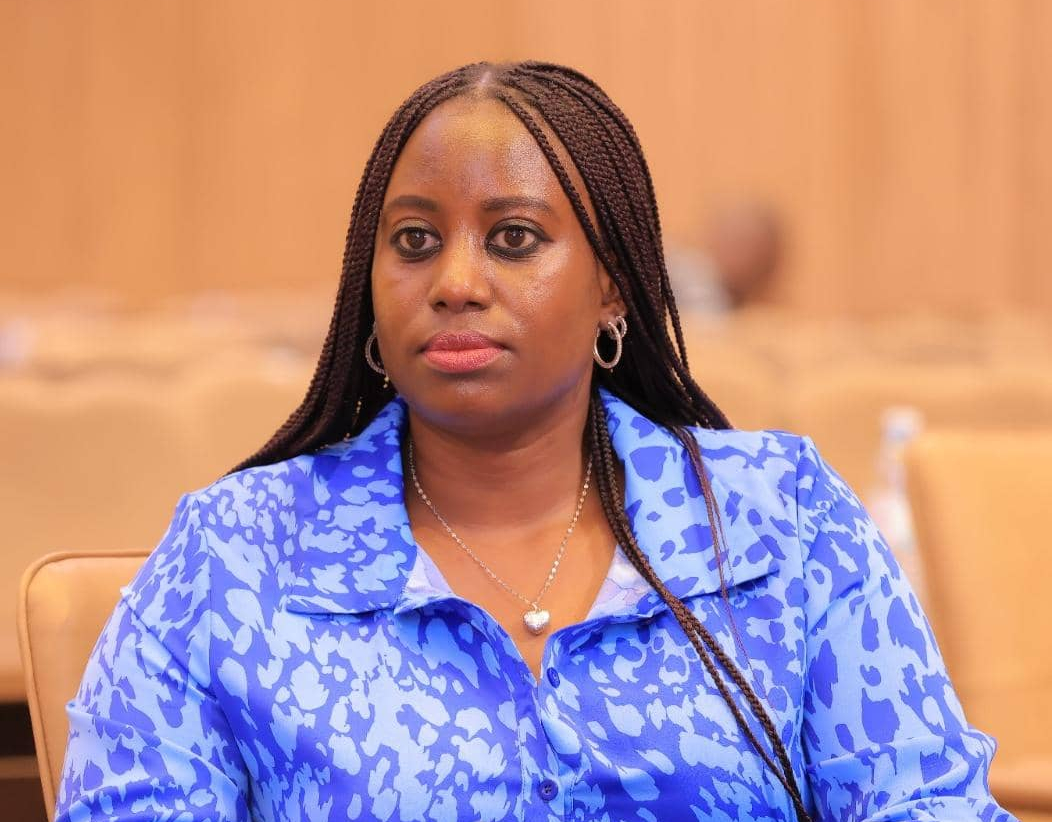
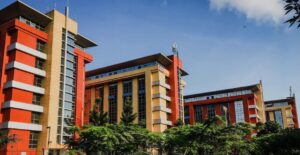 UAP Old Mutual’s Nakawa Business Park on Sale as Insurer Reevaluates Real Estate Investments in the Region
UAP Old Mutual’s Nakawa Business Park on Sale as Insurer Reevaluates Real Estate Investments in the Region 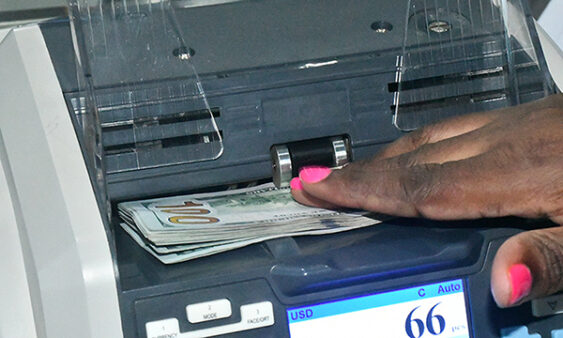
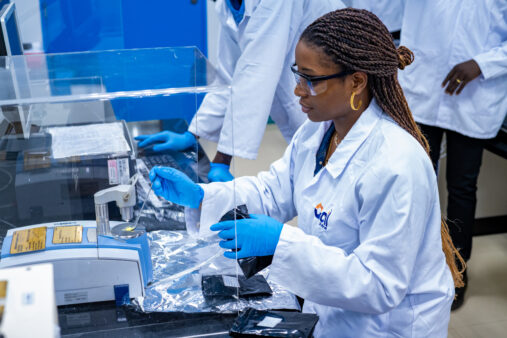
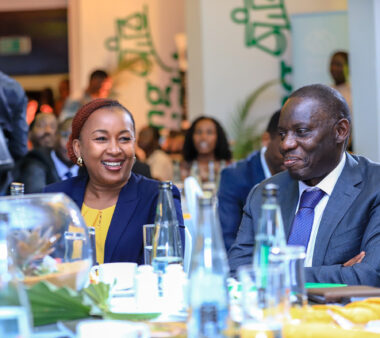





Post Comment